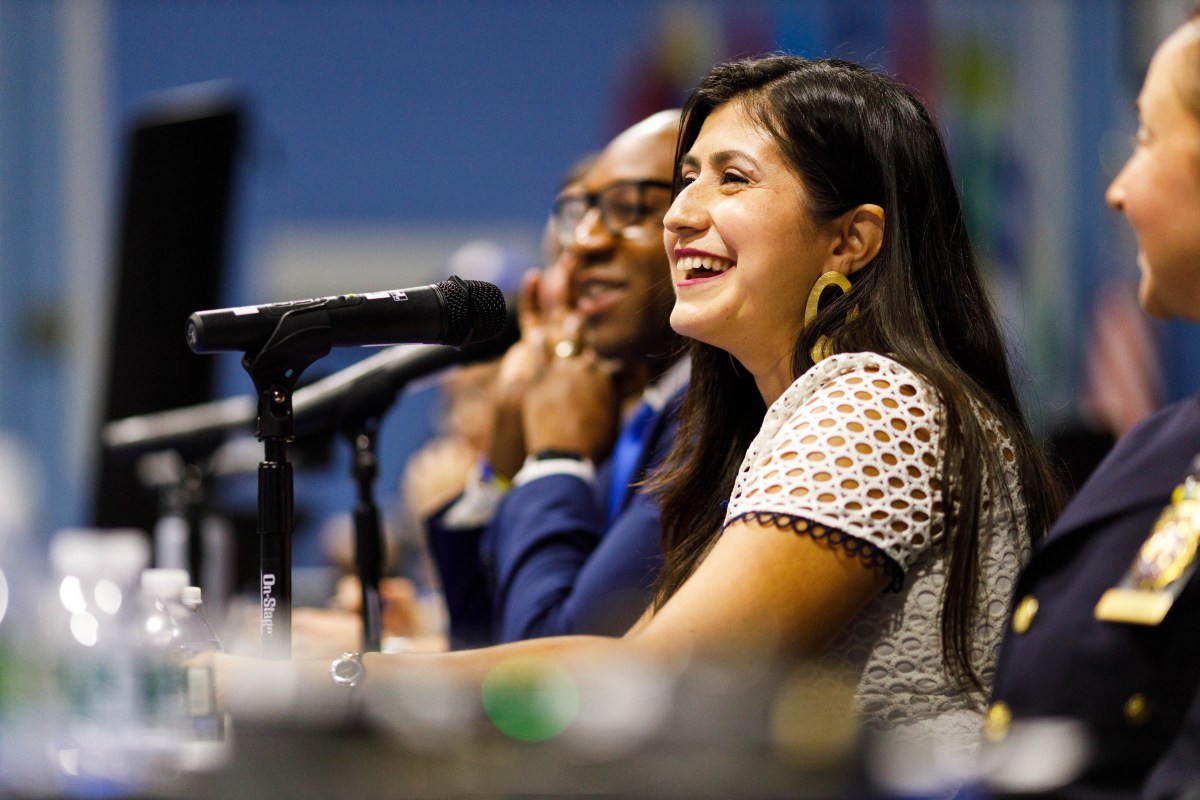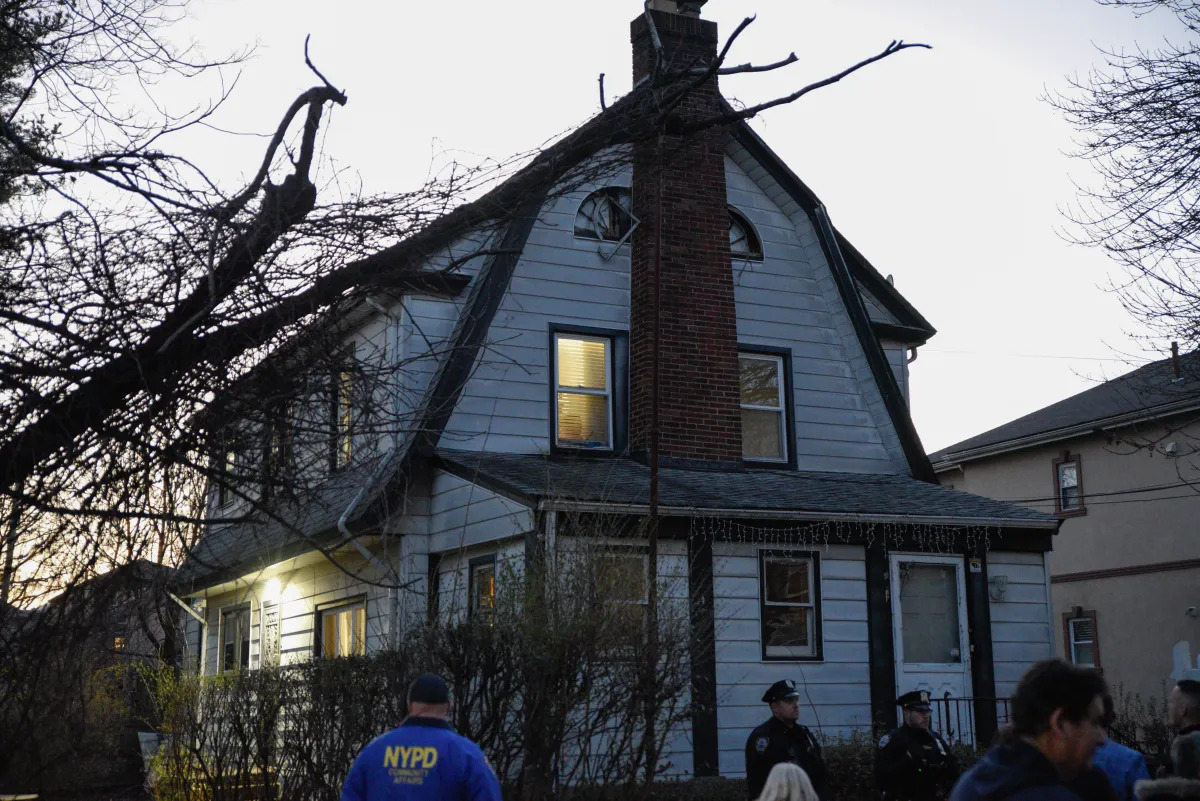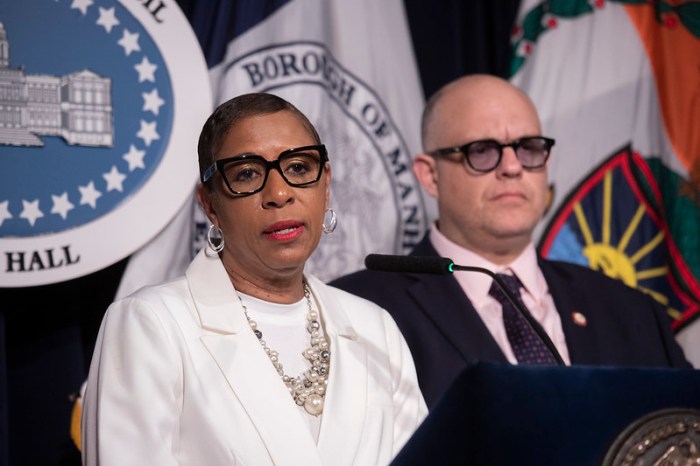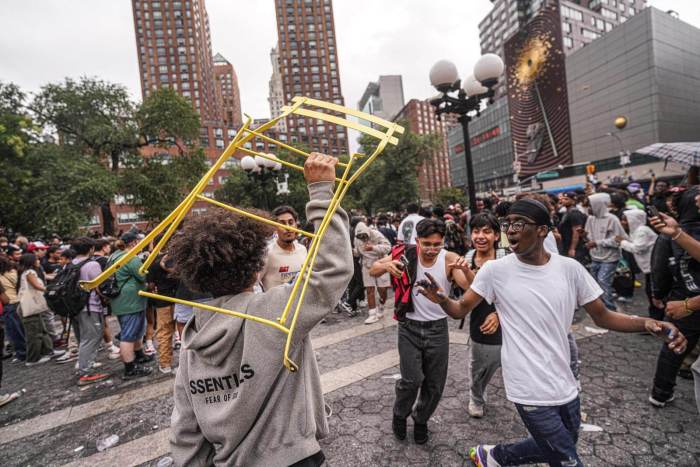
Jurors began deliberating Tuesday in the Brooklyn manslaughter trial of NYPD rookie cop Peter Liang — charged with the shooting death of an unarmed man in a darkened stairwell — after a prosecutor called him a “killer’’ and said the shooting was no “accident.”
If convicted, Liang faces up to 15 years in jail for the death of Akai Gurley, 28, who was shot through the chest at the Louis H. Pink Houses in November 2014.
In his closing argument, Assistant District Attorney Joseph Alexis, alluding to Liang’s testimony, told jurors the officer pointed his gun in a downward direction where Gurley was standing after hearing “a sound.”
“He pointed the gun down where Akai Gurley was standing and pulled the trigger,’’ the prosecutor said. Alexis read back Liang’s account from the witness stand: “I heard something and it startled me and the gun went off.’’
“It was no accident,’’ said Alexis. The defense maintains Liang’s weapon discharged accidentally.
He said Liang is a trained police officer who underwent “rigorous training’’ and had 11 months’ experience patrolling the stairwells of the Pink Houses — described as one of the most dangerous public housing projects in the city by police officers who testified at the 10-day trial.
Alexis said Liang used reckless judgment and accused him of trying to hide evidence when he went back to the eighth-floor landing to recover the casing from the bullet that was fired from his gun.
“Peter Liang went back up the stairwell to get the casing so that he can keep it a secret so nobody would know,’’ Alexis told the jury. He said, “Police Officer Peter Liang knew there would be consequences. He was only thinking about himself.’’
Jurors have to decide whether the police officer’s actions were criminal when he did not give Gurley CPR.
But defense lawyer Robert Brown said Liang was not obligated to administer CPR according to the NYPD patrol guide. He also told jurors that Liang met his responsibilities as a police officer when he radioed in the shooting.
Using Liang’s gun, Brown demonstrated to jurors how the gun could have accidentally fired with his finger along the outside of the frame around the trigger.
“The slightest flinch and the gun went off,’’ said Brown, as jurors heard the clicking sound of the gun. He also referred to expert testimony that said the trigger was not properly calibrated.
Brown asked jurors to review the radio call Liang made to report the shooting. “Listen to Peter’s voice. That is not the voice of a coldblooded killer.’’
Brown concluded by asking jurors not to make Liang “a scapegoat.’’ He warned jurors that a guilty verdict will “send a chilling effect to police officers across the city. Police officers should be allowed to take out their guns.’’
Liang is charged with manslaughter, criminally negligent homicide, reckless endangerment, second-degree assault and official misconduct. The jurors deliberated for an hour and will resume Wednesday.

















